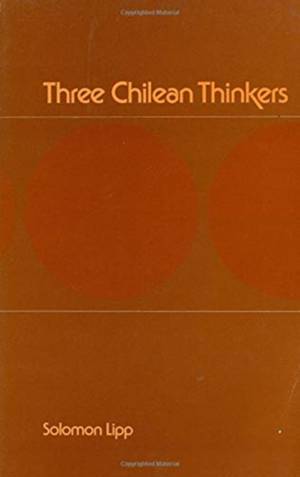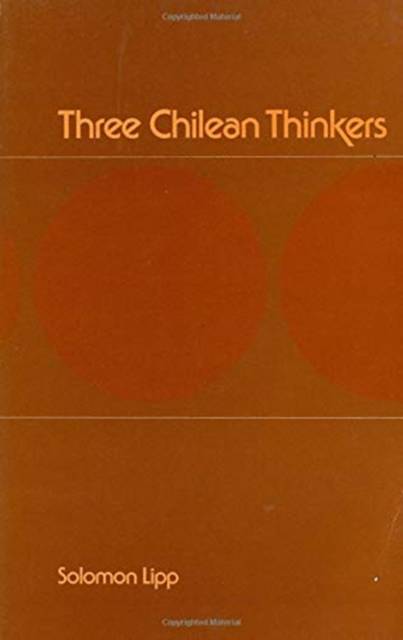
- Retrait gratuit dans votre magasin Club
- 7.000.000 titres dans notre catalogue
- Payer en toute sécurité
- Toujours un magasin près de chez vous
- Retrait gratuit dans votre magasin Club
- 7.000.000 titres dans notre catalogue
- Payer en toute sécurité
- Toujours un magasin près de chez vous
Description
Three Chilean Thinkers, a companion piece to Three Argentine Thinkers, attempts to examine some of the outstanding characters of Chile's intellectual development by way of analyzing the contribution of three of her distinguished representatives. Each thinker or philosopher, whichever the case may be, is symbolic of a definite sociopolitical movement which left its unmistakable imprint upon the cultural scene. Moreover, each thinker, no doubt, was strongly influenced by European philosophical trends, but should in now way be considered a mere imitator. It would be more accurate to say that they adapted these currents to their particular situation, utilizing the various component elements in order to explain or reform the Spanish American scene.
Since each of the three represents a separate epoch, it was thought best to present them in chronological fashion in order to insure a measure of historical continuity. Thus, the first author treated is Francisco Bilbao, representative par excellence of the Romantic period. He is followed by Valentín Letelier, who can be said to have been one of the foremost exponents of what may well be considered as a reaction to Romanticism, namely, the Positivist era. Finally, Positivism, in turn, also produced a reaction in the form of the various idealistic tendencies which blossomed forth at the turn of the century--reaction to the dominant position exercised by evolutionism and scientism--represented in Chile by Enrique Molina.
Spécifications
Parties prenantes
- Auteur(s) :
- Editeur:
Contenu
- Nombre de pages :
- 174
- Langue:
- Anglais
Caractéristiques
- EAN:
- 9780889200173
- Date de parution :
- 01-07-75
- Format:
- Livre broché
- Format numérique:
- Trade paperback (VS)
- Dimensions :
- 152 mm x 229 mm
- Poids :
- 219 g







